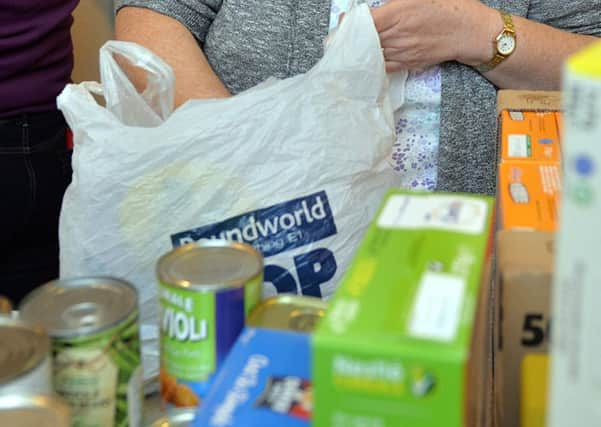Households at risk of food and fuel poverty as '˜heat or eat' dilemma proves real


But while the dilemma of choosing between the two exists, the reality is more complex, with food bank users saying that their decision is more about how to spend less on their food and fuel.
Dr Hannah Lambie-Mumford, co-author of the report and research fellow at SPERI said: “The ‘heat or eat’ dilemma is real, but our research suggests that this winter many low income households won’t be able to afford either sufficient food or fuel. These incredibly tough budgeting decisions are leading households to prioritise and ration their spending in complex ways. Food is often prioritised over heating, although cheaper food is often bought out of necessity, and using energy for lighting, cooking and hot water is often prioritised over heating.”
Advertisement
Hide AdAdvertisement
Hide AdThe research also found that government welfare reforms, benefit payment delays and an increase in benefit sanctioning are all negatively impacting the budgets of low income households. Cuts to local government budgets are also reducing the ability of local services to support people at risk of fuel and food poverty.
Dr Lambie-Mumford added: “Low income households face a combination of further large cuts to the welfare budget which risk forcing them to reduce their spending on food and fuel, and cuts to council budgets which risk weakening local support services. Action is urgently needed to address the root causes of food and fuel poverty.”
The report also analysed the specific challenges faced by rural communities which drive rural food and fuel poverty. These include the large distances that people often need to travel to access food banks, libraries or advice services, and limited public transport; a lack of affordable housing which is made worse by ‘second’ holiday homes; cold and damp private rental housing; low pay and insecure seasonal employment; poor mobile and broadband coverage which makes applying for jobs difficult, and restricted access to cheaper forms of fuel such as mains gas.
Dr Carolyn Snell from the Department of Social Policy and Social Work at the University of York, and co-author of the report, said: “Poverty isn’t just an inner-city problem, yet rural communities are often missing from national debates about poverty. Policymakers need to address the unique challenges facing the rural poor.
Advertisement
Hide AdAdvertisement
Hide Ad“More research is needed to understand the impact of austerity on all households, in cities and rural communities, and the complex budget decisions for their food and heating costs they are being forced to make.”